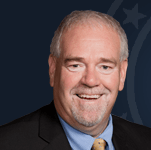By Christine Vestal
Stateline.org
Less than a year after low-income Arkansans started receiving health coverage under the Affordable Care Act’s controversial Medicaid expansion, the state is declaring its so-called “private option†experiment a success.
In Indiana…
Indiana Gov. Mike Pence has asked federal officials for permission to extend the Healthy Indiana Plan in place of a traditional Medicaid expansion.
The Indiana proposal could cover as many as 350,000 non-disabled adults ages 19-64 who earn between 23 percent and 138 percent of the federal poverty level. In 2014, that means a maximum income of $16,105 annually for an individual and $32,913 for a family of four.
The plan would require some participants to pay a deductible or fee to participate, which has raised questions among federal officials who are reviewing the proposal.
Hospitals saw fewer uninsured patients, state coffers were spared millions in health care costs and private insurers reported record-low premium hikes. Most important, Arkansas’ uninsured rate fell from 23 percent to 12 percent, the sharpest drop in the country.
But lawmakers in Arkansas, where Gov. Mike Beebe is a Democrat and the legislature is controlled by Republicans, have already asked the federal government for adjustments to their groundbreaking plan, under which Arkansans used Medicaid dollars to purchase private health insurance on the insurance exchange created under the ACA. Meanwhile, other states are customizing their own alternative approaches to expanding Medicaid to cover adults with incomes up to 138 percent of the federal poverty level ($16,105 for an individual).
“It’s an iterative process,†said Matt Salo, director of the National Association of Medicaid Directors. “States are probing the defenses of the HHS (U.S. Department of Health and Human Services) fortress to see what they can get approved,†he said.
Ever since the U.S. Supreme Court made the federal health law’s Medicaid expansion optional for states, the debate over expansion has become a proxy for supporting or opposing Obamacare.
After the November elections, more states are expected to reconsider their largely political decisions to pass up millions in federal dollars that can be used to improve the health of their residents.
“This is a fight within the Republican party,†said Joan Alker, director of Georgetown University’s Center for Children and Families. “After the election, when governors and lawmakers feel less threatened, we should see more movement,†she said. Alker and others cite Idaho, Montana, Nebraska and Florida as possible converts.
So far, 28 states and the District of Columbia have decided to expand Medicaid and 22 have not. Of the 28 states that have expanded the federal-state program, 19 have Democratic governors and nine – Indiana, Iowa, Michigan, Nevada, New Jersey, New Mexico, North Dakota, Ohio and Pennsylvania – are led by Republicans.





There are many people who are not between 19 and 64, Gov. Pence. Wake Up!!!!! There are the elderly well over 64 who have no dental or vision coverage that medicaid could supply since medicare does not. They do not have access to the Healthy Indiana Plan. There are also many disabled people who cannot use HIP. We hear nothing of these folks. Pence your ideas are crocks. They are all for political reasons, not human ones. Your only interest in your current job is to find further self-advancement, not to govern Indiana.
Comments are closed.